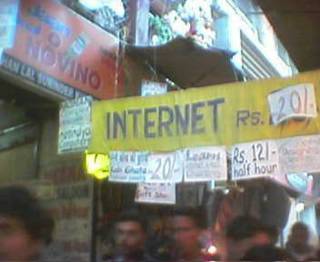The cybercafe business is resembling a graveyard for organised chains
Businessworld - STAY AHEAD EVERY WEEK The cybercafe business is resembling a graveyard for organised chains. Bangalore-based Junction96 has downed shutters. Tata Nova is pulling out. DishnetDSL is closing outlets. Sify's iway, India's largest chain with 1,000 cafes, is yet to make profits. Paradoxically, the market is booming. Cybercafé revenues are seen doubling from Rs 250 crore now to Rs 500 crore in the next two years. IMRB pegs the number of cybercafes at 50,000 today, and this number is also doubling every two years. So far, it is the poky neighbourhood cafes that have seized the opportunity. Will any organised player crack this puzzle? If they do, it will probably be Sify. Its revenues grew to Rs 7.88 crore last quarter. Going by that, it could end this year with revenues over Rs 30 crore. Its billings of Rs 20-25 per hour are shared (70:30) between Sify and its franchisees. That's enough to let most franchisees break even in 24-30 months. The only one yet to make profits is Sify itself. But that is because in the last quarter it spent Rs 6.5 crore on the brand. It spent another Rs 7.3 crore sprucing up its back end. "It was a choice between maintaining cash profits and incurring an one-time marketing expense for the expanding cybercafe business," says CEO R. Ramaraj. It's this willingness to invest which works in Sify's favour. A late entrant, it came in with a nifty business model. Most cybercafes use a leased line/ISDN line for connectivity. More often than not, these are provided by BSNL/MTNL and suffer from severe bandwidth constraints. In contrast, Sify set up a wireless broadband network. Instead of using the BSNL/MTNL lines, its cafes access bandwidth via microwave receivers. Then, there is Sify's national IP backbone. Between the cafes, the ISP and the corporate network businesses, the network sweats more, resulting in faster return on investment. So iway's browsing costs have stayed as low as Rs 20-25 an hour. Then, it introduced a centralised billing system. All users get a unique identity and password, which locks them in and stops franchisees from underreporting revenues. It also lets them personalise their email and Web preferences. Today, 4 lakh registered users have already signed in. For iway, it is just a question of waiting for the profits.


